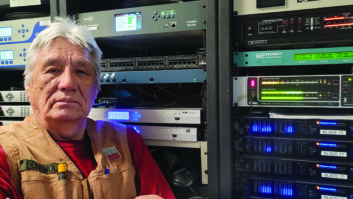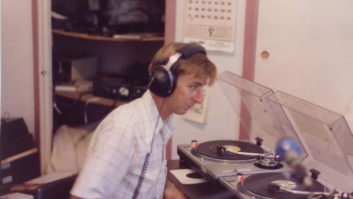Nearly five decades ago, the baby boomers were the “Young Generation” whose talents and aspirations baffled their Depression-era elders.
Fortunately for radio broadcasting, some smart managers grasped the baby boomers’ potential, and used it to revitalize the radio industry as a pop culture music medium. The rest, as they say, is rock radio history.
Today, “millennials” make up the Young Generation. They are recent college grads and 20-somethings who have grown up in the new millennium, amidst game-changing paradigms of the Web and social media. Now millennials’ talents and aspirations baffle the boomers and younger “Generation X” radio people, whose demographic sits between these disparate age groups.
Yet again, it is radio’s chance to move ahead by harnessing the passions and energies of a Young Generation.
IN YOUR WORKFORCE
Jayne Charneski says that like boomers before them, millennials have a different approach and attitude to work than their parents.
“They have different expectations for the workplace — they want to do more than just earn a paycheck and have a cool job,” said Charneski, who will speak during the NAB Show in April about “activating the young workforce” at radio stations. She’s a millennials analyst and president of Jayne Charneski LLC.
“They are different in so many ways, but a big one is that their definition of success has changed. They want to do good and do their small part in changing the world for the better. Ideally, they’d do this through their job and the company they work for.”

Jayne Charneski As was the case in the Flower Power days, radio managers need to “bridge the generation gap” to get the most from younger employees. Millennials do not share the same cultural context as their bosses.
“They feel just as perplexed by the Xers and boomers in the workplace as the Xers and boomers feel about them,” said Charneski. “It’s so important to bridge this gap and bring the generations together; there is just so much potential to tap into with millennials.”
This potential is real, yet sometimes denigrated by boomers and Xers who may view the millennials’ attitudinal differences as laziness and pay little heed to youthful energy and creative vigor. “Millennials are often misunderstood, especially in the workplace,” Charneski said. Rather than being lazy and unmotivated, “they are the most educated, tech-savvy, creative, socially conscious, and despite the recession, optimistic generation of workers to date,” she said.
“Besides, these are the people that are the future of radio,” said Charneski. Moreover, they “will represent 50 percent of the workforce by 2020!”
Charneski’s session will dig into useful ways to motivate millennials and to harness their creativity for the good of radio. In doing this, she said, attendees will be asked to consider, “How much you know about why millennials do what they do, and how can you use this understanding to work together more effectively with them?” she said.
Charneski offered the following insights for attendees to ponder, to prepare for “Activating the Young Workforce at Your Radio Station.”
“Millennials are often viewed through the lens of their manager’s generation — boomers or Xers,” said Charneski. “But millennials are so different. For example, millennials grew up with parents who were more like ‘peer-ents’ — more like peers than authority figures. Many millennials consider their parent a best friend, and treat them as such.”
“Cut to the workplace: The boss or manager is effectively the workplace parent, right? So millennials expect the same dynamic with their manager as the one they have with their parents,” Charneski said.
“In other words, they expect to be more like friends and peers. Their Xer and boomer managers, meanwhile, are expecting an authoritarian-like relationship — just like the one they had with their parents. These manager feel disrespected when millennials treat them casually and more like a ‘bro’ than a boss.”
Millennials not only grew up being asked for their opinions, but being their parents’ tech support when it came to computer, the Web and smartphones.
“They grew up the CIO of their household, knowing more about tech than their parents. Now, insert them into a hierarchical structure at work where they are the lowest man on the totem pole, so they aren’t being asked for their opinions, and they don’t get it. And they don’t feel valued, and they have no idea why they aren’t being utilized.”
Boomers take note: You demanded that your elders listen to and respect your opinions Now, it’s your turn. (Somewhere, the boomers’ retired bosses can be heard cackling with unbridled glee.)












